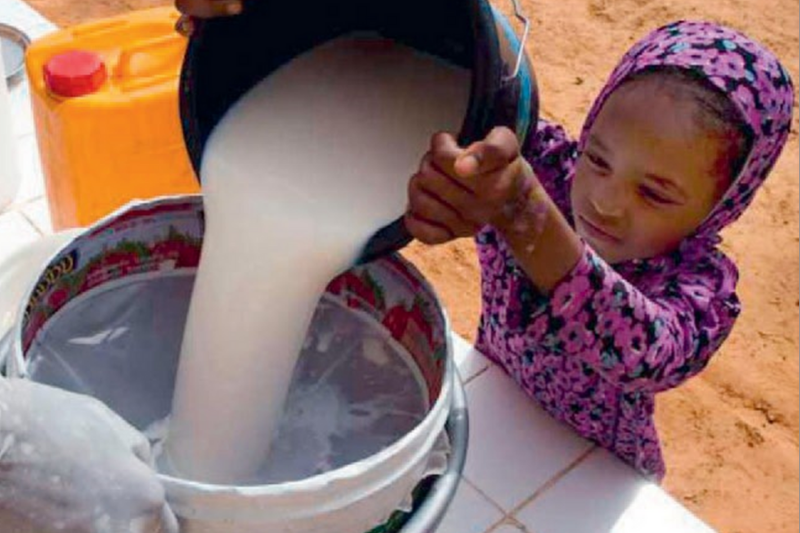
Translated from a story published in Le Soleil in August 2021.
Improve the resilience of the dairy value chain by strengthening public-private partnership. This is the goal of the project launched yesterday in Dakar by the Food Technology Institute in collaboration with USAID.
Food security, the milk value chain, public-private partnerships and gender. These dimensions are what guide and ground the project “Strengthening capacity for sanitary food security in Senegal: Improving the resilience of the dairy value chain by strengthening the public-private partnership” launched yesterday in Dakar. Unfolding in the country’s northern zone (in the regions of Saint-Louis, Matam and Louga), the project seeks to benefit from the “enormous potential for milk production by the large amount of livestock in the area,” said Mamadou Amadou Seck, Director General of the Institute for Food Technology (ITA – Institut de Technologie Alimentaire).
He observed, however, and deplores the fact, that the “sanitary quality of the milk, as well as its availability, are not entirely reliable.” Moreover, to justify the urgency of setting up a project over a period of three and a half years, he notes the estimates of the World Health Organization (WHO) indicating that Africa is “confronted with the highest burden of food-borne diseases per inhabitant, with around 137,000 deaths and 91 million persons suffering from acute disorders each year.”
“The WHO estimates that 70% of the disease burden is caused by bacteria, parasites and chemical hazards present in certain products and nutritious foods with high added value, such as dairy products,” he added.
Training the actors
“The overall objective is to raise the awareness of stakeholders to the problems of the food security of milk and derivative products, as well as their impact on public health,” explained Dr. Younoussa Diallo, in charge of research and Head of the Division of Control and Quality at ITA.
As he sees it, attaining this objective should be accomplished by developing and conducting grassroots training and capacity-building programs. But also by providing the food industry with knowledge on cost-benefit approaches to implementing a sanitary food security management system.
The need to “give consumers healthy and nutritious products demands improvement in milk processing,” Dr Diallo underscores.
The project, with financing on the order of US$ 700,000 (about 350 million FCFa) by USAID, focuses on improving awareness of food security problems in the value chain for milk and derivative products, and the creation of a network of professionals who are well-equipped to promote food security in Senegal.
This also involves developing autonomy for women and increased participation by young people. Other outcomes are also expected, having to do with “improving nutrition, in correlation with human health, and reducing and attenuating risks to achieve resilience.”
The partnership calls for the involvement of research institutes (ITA, ISRA, CNDN) supported by Senegalese and American universities (University of Georgia, Tuskegee University, UCAD, USSEIN), the Senegalese Association for Standardization and Guidance of Livestock Industries.
The gender aspect derives from a strategy that seeks to “understand and fill gaps in the knowledge of women producers engaged in artisanal processing on contamination and diseases related to dairy products,” according to Dr Diallo. It will also involve integrating this question of gender into management.
Author: Ibrahima Khaliloullah Ndiaye
Translation by Alboum

